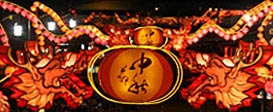The New Perspective of Consilience of the Arts and Technology in the Era of Ubiquitous Computing
![]() Full Conference
Full Conference ![]() One-Day Full Conference
One-Day Full Conference
Educators Keynote Address
Ubiquitous Arts & Technology (U-AT) Consilience Education is a new term coined by the Korea National University of Arts to refer to consilience of ubiquitous computer technology and diverse arts genres in a narrow sense, and consilience of the arts, humanities, and technology in a broader sense. In this sense, consilience refers to a non-reductionist unity of knowledge, unlike the reductionist consilience in the humanist biology of Edmund Wilson.
The term, coined by William Whewell in the early 19th century, is a revival of the Latin word consalier, which means "varied branches uniting and jumping together to form a unified trunk." According to the science of complex systems, the process of mixing different elements, and their interactions, are critical requirements for creative experience and knowledge creation.
The key objective of U-AT Consilience Education is to establish a creative education system to produce quality content in multi-source-multi-use mode by institutionalizing the cooperative ties between industry and the university for joint research projects, creative endeavors, and education. The overall purpose is to promote continuous and systematic communications and consilience of six artistic genres: music, drama, film-TV-multimedia, visual arts, dance, and Korean traditional arts.
Author
Park Se-Hyung
Korea National University of Arts









